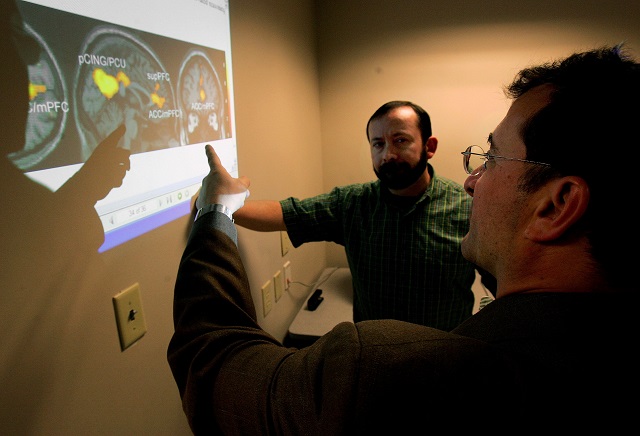
(AP Image / Ric Feld)
Choosing Friday night plans. Deciding what to wear to work. Selecting a new Netflix show to binge-watch. People are influenced by the tastes and opinions of their friends, and vice versa. But that doesn’t mean you’re a carbon copy of your social network— or does it? We talk with Carolyn Parkinson, an assistant professor of social psychology at UCLA, about why our brains might be more similar that we think.
Three Takeaways:
- Sociologist Nicholas Christakis spoke with us in 2014 about his study on how an individual’s social network can impact everything from their political views to their body weight. One of the conclusions of his work is that humans typically choose friends who are as genetically similar as their 4th cousin.
- Parkinson’s study examined the brains of 300 students in the same MBA program. After doing fMRI and mapping the students’ social network, the researchers found that the closer the friendship between two students, the more similar their brain activity appeared to be.
- But Parkinson’s research on friendship poses a question about the causality of likeness. Do we seek out friends who are similar to us, or do our social connections make us more similar?
More Reading:
- Want to know more about how other social animals navigate friendships? Check out the social lives of sharks, dolphins, and monkeys in BBC Future.
- One of the biggest questions facing the science of friendship is why we bother with relationships outside of our immediate families. Learn more about the evolutionary biology of friendship from Dr. Lauren Brent.
- Researchers at the University of Oxford studied how having more friends could result in a higher pain tolerance. Read more about their research here.
- Want to know more about Parkinson’s study? Read about it here in The New York Times.
- You can pick your friends, but your connections might be more a genetic fate sort of thing. Read more the study that proves it here.

